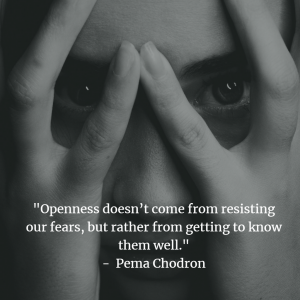Guiding Your Child Towards Authentic Living: Nurturing Values and Integrity

A vital component of happiness and well-being is living with integrity, which revolves around authenticity. Authenticity entails your child being true to who they are and integrating this into every aspect of their lives. It goes beyond simply speaking the truth; it involves living genuinely and authentically, as Shakespeare’s quote from Hamlet suggests, being down-to-earth and without pretence, both to oneself and others.
Many people wear masks, thinking they must act a certain way around certain people or say certain things to be accepted. As parents or guardians, it is important to discourage your child from playing a role to fit in or impress others instead of being themselves.
Your child’s authenticity means being true to their personality, values, and spirit, regardless of the pressure to behave otherwise. Your child should be honest with themselves and others, taking responsibility for their actions. When your child’s values, ideals, and actions align, your child will come across as genuine and willing to accept the consequences of staying true to what is right. This alignment is not merely a pursuit but the cornerstone of personal integrity, shaping how your child navigates challenges and contributes to society.
Living authentically impacts psychological well-being and social interactions. Internal conflicts arising from misalignments of values and behaviours can lead to stress, anxiety, and inner turmoil. Moreover, incongruent actions can affect relationships and communities. Authentic living helps your child avoid impulsive actions that may lead them astray from their values.
Nurturing your child toward living an authentic life involves two steps: self-knowledge and courage. Self-knowledge entails helping your child understand who they truly are, as opposed to societal expectations. It involves being clear about what is important, such as their values, passions, and interests. These serve as inner compasses for navigating life. The second step is having the courage to live in accordance with this knowledge. When your child knows what they want and value, everything should align with that, even their actions at home and in public.
Every moment of every day, your child is making decisions about how to live, react, and what to prioritise. Their actions should reflect their values. While nurturing your child toward authenticity, it is crucial not to overlook the moral dilemmas your child may face and to prepare accordingly.
Let us explore factors that can influence being authentic:
- External Factors: External forces such as pressures, conflicting cultural norms, and societal expectations can create dissonance between your child’s beliefs and behaviours.
- Internal Factors: Inner conflicts such as psychological struggles, unresolved emotions, and cognitive dissonance contribute to the misalignment of values and behaviour.
- Grey Areas: Ethical dilemmas often reside in the grey areas, demanding thoughtful consideration and ethical reasoning. This includes navigating conflicting values which requires a delicate balance, with an interplay of compromise and prioritization becoming crucial.
Misalignment can lead your child to state values they wish they had, rather than those they deeply hold. This avoidance of reality can lead to self-deception and trouble. It is essential to help your child face their values honestly and embrace who they truly are.
In conclusion, values are extensions of ourselves and define us. It is crucial to nurture your child to establish, clarify, and live by their values. As you work with your child to clarify their values, help them establish a personal value system and hierarchy that are important to them.




